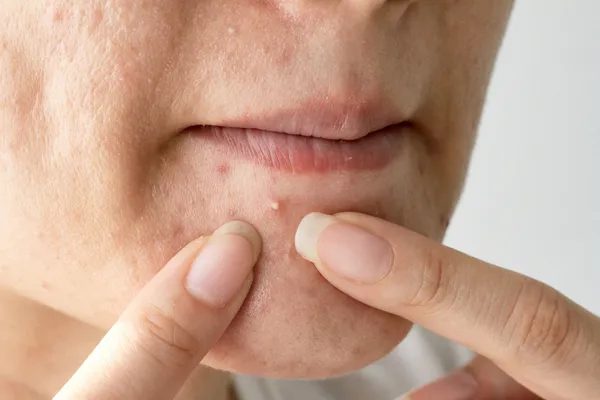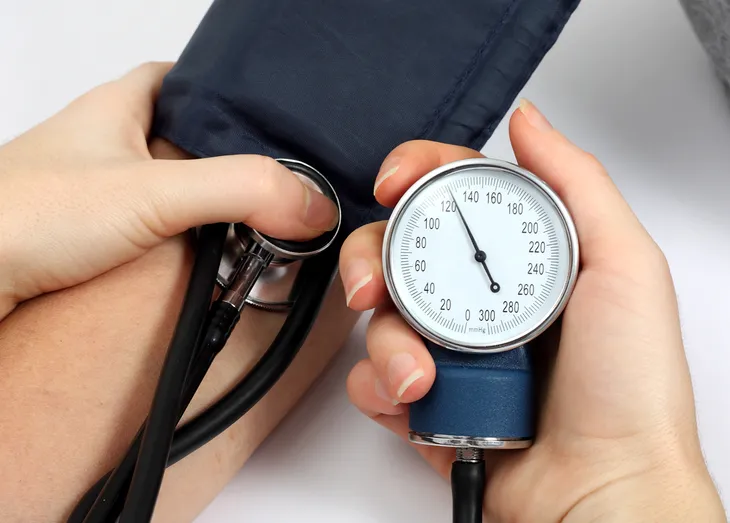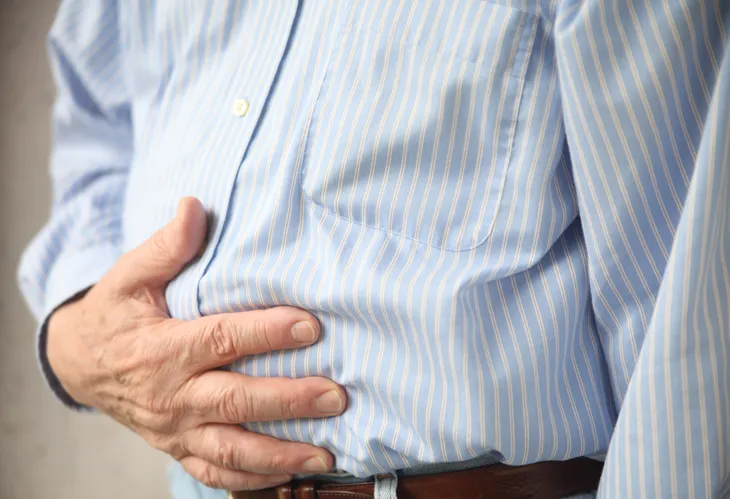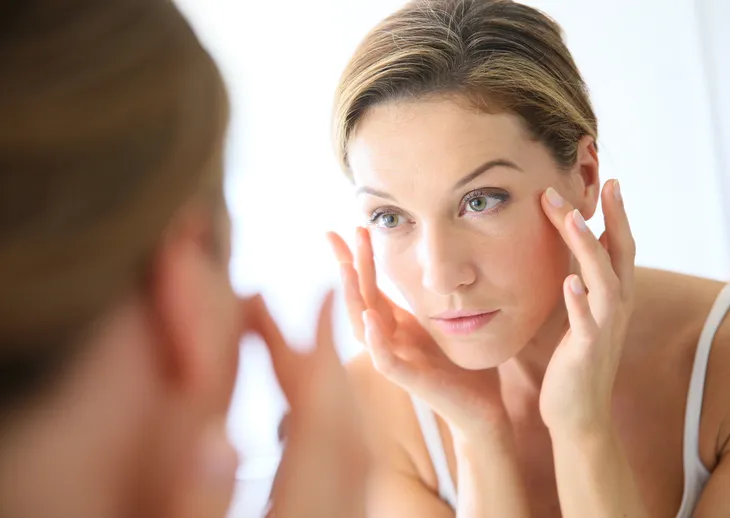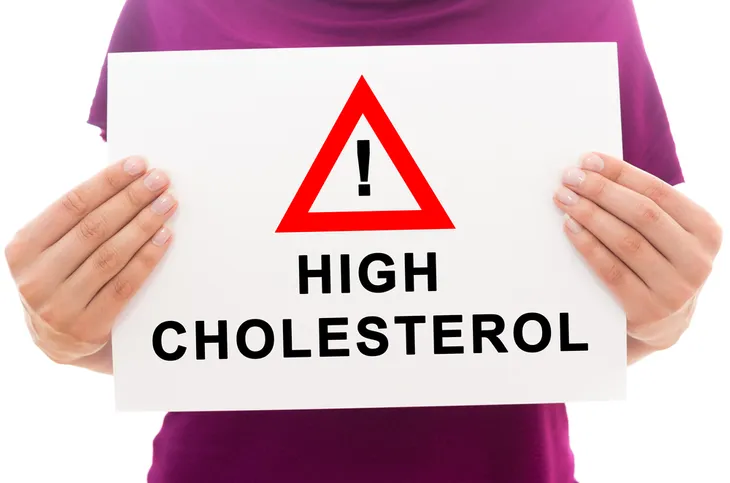Sugar is hard to resist – it lights up that pleasure center in your brain, which makes you want more. In fact, research has shown that the sugar you consume actually feeds Candida yeast and other unhealthy organisms hiding in your guts, which leads to more sugar cravings.
That means you can leave your inner ecology out of balance, which can lead to a host of health symptoms. Let’s take a look at 13 signs you’re piling too many sugary foods into your mouth…
You Crave Sugar Constantly
“The more sugar that you binge on, the more you feed Candida overgrowth. The more Candida overgrowth you have, the more you crave sugar. It’s a vicious cycle,” explains BodyEcology.com.
The source explains that the “good” bacteria (that you want around) compete for space in the guts with Candida, which is a natural way your body keeps the balance in check. If you’re not consuming the right foods or have depleted good bacteria due to other factors such as antibiotic use, then you could be opening the door to unhealthy microorganisms, it adds.
Your Brain is Moving Slower
No, we don’t literally mean you’re unconscious, but as SELF points out, eating high levels of sugar can leave you in a brain fog. Surprisingly, this actually is a result of having low blood sugar, not high blood sugar, says the source.
But wait… what? How can that be? Well, according to Self, consuming a lot of sugar makes your blood sugar levels spike, and then drop off quickly instead of gradually. “Poor blood sugar control is a major risk for cognitive issues and impairment,” it notes.
Your Body is Moving Slower
While too much sugar can put the brakes on your brain, it can also slow you down physically, says Self.com. The source says that while you might get a sugar “high” and a quick burst of energy after consuming something sugary, you’ll crash more quickly too.
Blood sugar spiking and dropping is not conducive to sustained energy throughout the day, it adds. “Energy is most stable when blood sugar is stable,” it notes. Because your diet is full of sugar, it might also mean you’re not getting enough protein and other essentials, which can also explain your feeling of sluggishness throughout the day, it adds.
Your Skin is Breaking Out
Healthline explains that there is actually a link to acne from consuming refined carbohydrates, a category that includes sugary food and beverages. Sugary foods make your blood sugar levels rise, which leads to a higher level of a steroid called androgen along with inflammation that “play a role in acne development,” it says.
It points to studies that say low-glycemic diets are associated with lower risk of acne breakouts – it cites one study in particular that found teens who regularly consume sugar have a 30-percent higher chance of developing acne (among 2,300-test subjects).
The Scale Doesn’t Tip in Your Favor
There’s a direct connection between consuming high levels of sugar and weight gain, says WebMD. “This probably isn’t news to you, but the more sugar you eat, the more you’ll weigh,” it explains.
It cites research that says people who drink sugary drinks in particular are prone to weight gain, as well as be at higher risk for type-2 diabetes. How much weight are we talking? Well, the source points to one study that shows subjects that increased sugar intake gained approximately 1.7-pounds in less than two months. At that rate, you’d gain more than 10-pounds a year.
There’s Nothing to Smile About
Hope you like going to the dentist – because it likely means you’ll be making trips to fill cavities if you’re filling your sugar craving all the time, says WebMD. “You probably rolled your eyes at age 12, but your mother was right: Candy can rot your teeth,” it says.
That’s because lingering sugar in your mouth – it can be hard to reach with a brush sometimes – attracts bacteria that eat the sugar and leads to cavities, says the source. There’s nothing sweet about that, unless your dentist is a fun person to hang out with in the treatment chair.
Sugar Highs Lead to Low Moods
As Healthline points out, a diet that’s high in added sugar (as well as processed foods) can actually up your risk of developing depression. It says researchers believe “blood sugar swings, neurotransmitter dysregulation and inflammation” associated with sugar intake can all negatively impact your mood.
It cites a study that follows 8,000-people for 22-years, which shows men who consumed 67-grams or more of sugar per day are 23-percent more likely to show symptoms of depression than those who ate 40-grams or less. A study sugar consumption among women had similar results, it adds.
The Pressure Is On
You might not know about this health sign of sugar intake until you visit the doctor for a checkup, but Best Health says high blood pressure can be a sign of high sugar intake.
The source notes a high-sugar diet can push your blood pressure beyond what it considered normal range, and it even says that some scientists argue that limiting sugar may be more important than lowering sodium intake when it comes to blood pressure regulation. Fructose (also known as fruit sugar) in particular “may uniquely increase cardiovascular risk by inciting metabolic dysfunction,” it adds.
You Feel Bloated For Apparently No Reason
Feeling bloated is not fun physically, and it doesn’t make you feel good mentally either, but it’s apparently a side effect of too much sugar, says Bustle.
This is because sugar intake can lead to a wonky metabolism and more retained fluids, making your abdomen feel puffed out, says the source. If you feel bloated often, recount what you’ve been eating – if it’s full of sugar, you might have your answer, it suggests.
You Have Fewer Sweet Dreams
If you find yourself tossing and turning in your sleep, it could be the result of eating too much sugar during your waking hours (especially close to bedtime), says Bustle.
This over-consumption of sugar can be “throwing off your body’s balance of hormones,” and that could be keeping you staring at the ceiling at 3 a.m. If you’re going to down a sweet treat, try to do it a few hours before you plan to get some shut-eye. Instead of cookies or cake, you could also try eating yogurt or a few slices of cheese to curb those late-night cravings.
Speeding Up The Clock
WebMD claims that eating too much sugar can actually speed up the appearance of aging on your skin. It says that sugar attaches itself to proteins in your blood and creates “harmful molecules” called advanced glycation end products, or AGEs.
“These molecules do exactly what they sound like they do: age your skin,” notes the source. This occurs due to damage to the protein fibers that keep your skin looking youthful, namely collagen and elastin, it adds. Sugar intake can actually encourage sagging of the skin, so remember that the next time you’re ramming a donut down your throat.
Workouts Are No Longer Working Out
If you’re the active type, good for you. But eating right is still very important, and if you eat mostly sugary stuff, you’ll find yourself crashing following a workout, says Best Health mag. “If exercise seems to be getting harder, a high-sugar diet might be to blame,” it notes.
That means if you down some treats before engaging in intense activity, you might feel more fatigued than usual when you’re done, it adds. You might not even be able to make it through your regular jogging route, due to the rapid drop in blood sugar after a spike, it adds.
Raising Risk of Higher Cholesterol
This is another symptom of high sugar intake that you might not be aware of until your doctor draws blood and takes a better look. Sugar can increase levels of some fats in your bloodstream, decreasing your levels of healthy cholesterol at the same time, it adds.
The source admits the link between sugar, cholesterol and blood fats is not yet fully understood, but says research cited in the Journal of the American Medical Association suggests it could be fructose that promotes the creation of “bad” cholesterol. Your doctor or dietician will be able to help steer you away from foods to maintain healthy cholesterol levels.




